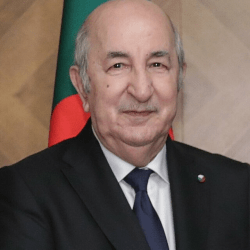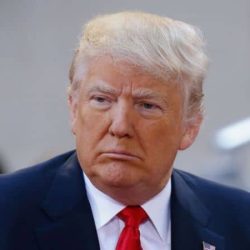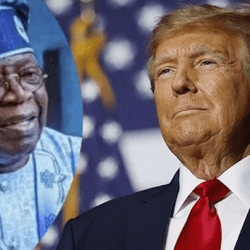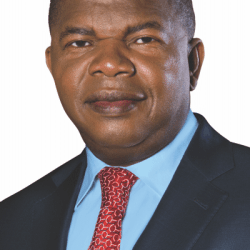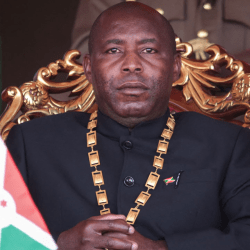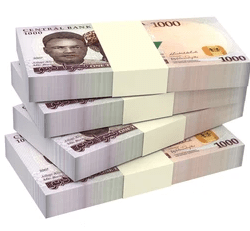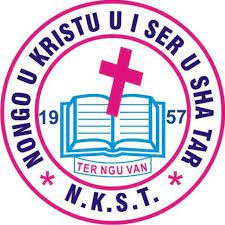Abdelmadjid Tebboune, the President of Algeria, was born on November 17, 1945 in Mishria (Naama Province), to an Amazigh father from Bousmegoun (El Bayadh Province), and a mother of Arab origin from the areas of Rabout, El Bayadh Province.Growing up and education 1969 – 1945

Eight months after his birth, his family moved from Naama Province to live in Sidi Bel Abbes Province due to the harassment and abuse of the French colonizers (administration, gendarmerie, etc.) against his father because of his patriotic speeches, given his affiliation to the Association of Algerian Muslim Scholars.
Tebboune began his academic career at the “Afyounis” primary school in the state of Sidi Bel Abbes, then the Free School for Imams. In 1953, after a family accident, Abdelmadjid Tebboune’s father sent him to El Bayadh, to live with his uncle Hamada, to continue his studies in primary school.

Arrests and harassment continued against Abdelmadjid Tebboune’s father, Hajj Ahmed, even in Sidi Bel Abbes, so he was forced to go daily to the colonial police station, before returning to Mishria in 1954 after his sentence was lifted.
Abdelmadjid Tebboune was able to complete his primary school studies and pass the intermediate stage competition exam (sixth year) in 1957, after which he studied at the regional secondary school (French Islamic) known as “the school,” then at Ben Zarjab secondary school.
In 1965, she obtained a baccalaureate degree and applied to pass the competition to enter the National School of Administration, the second batch, called the “Batch of the Hero Martyr Larbi Ben M’hidi.” Out of 600 candidates, Abdelmadjid Tebboune was among only 37 candidates who won the competition.
He graduated from the National School of Administration in 1969, majoring in economics and finance.
Abdelmadjid Tebboune began his professional career from the capital of the state of Béchar, which was then called Saoura and included all of Béchar, Tindouf and Adrar. After performing his national service duty (1969-1971), he continued his professional career, starting as an administrator, then assigned to a mission, to be promoted to Secretary-General of the newly established state of Djelfa in 1974, after which he was transferred in 1976 in the same position to the state of Adrar, then to the state of Batna. In 1977, then to the state of M’Sila in 1982.
Appointed governor of:
- Adrar Province in 1983.
- Tiaret state in 1984.
- Tizi Ouzou in 1989.
In 1991, Tebboune joined the government of Sayed Ahmed Ghazali as Minister Delegate in charge of local communities.
He left the government in 1992, after which he and his family settled in Adrar Province in 1994.
He was called back to the government in 1999 to hold the position of Minister of Communication and Culture, then Minister Delegate in charge of Local Communities for the second time.
He was appointed in 2001 as Minister of Housing and Urban Development until 2002.
In 2012, he was summoned again to the position of Minister of Housing, Urbanism and the City.
Tebboune also assumed the position of Acting Minister of Trade in 2017.
On May 24, 2017, Tebboune was installed as Prime Minister.
Tebboune was elected President of the People’s Democratic Republic of Algeria in the presidential elections of December 12, 2019, with a vote of 58.13%.
Reference: https://www-el–mouradia-dz.translate.goog/ar/president/biography?_x_tr_sl=auto&_x_tr_tl=en&_x_tr_hl=en-US&_x_tr_pto=wapp&_x_tr_hist=true
Algeria
Algeria is country in North Africa. It is the largest country on the continent and the tenth-largest in the world by area, covering more than 2.3 million square kilometers.
Capital: Algiers (El Djazaïr)
Official languages: Arabic, Tamazight
Government: Semi-presidential system
Currency: Algerian Dinar
Area: 2,382,000 sq km
Total Population (2017): 41.1 Million
Urban Population (2017): 73.50%
Female Population (2017): 49.70%






It has a coastline of about 1,200 kilometers along the Mediterranean Sea, and shares borders with Tunisia, Libya, Niger, Mali, Mauritania, Morocco, and Western Sahara.



It has a Mediterranean coastline of over 1200 km and a contrasting relief made up of plains, high plateaus, mountain ranges and a desert expanse of 2 million km² which is rich in natural and historical elements that represent the preserved memory of the southern Algerian region.
Algeria has:
- 1557 hotel establishments with a capacity of 143811 beds, including about 20000 beds, are in the public sector (HTT Group), which are currently being rehabilitated and modernised,
- 609 beaches listed, of which 427 are authorised for swimming,
- 10 national parks including Tassili National Park (100,000 ha) and Ahaggar National Park (Hoggar 000 ha), wetlands, 51 of which are classified by the Ramsar Convention, as well as a rich thermal potential.
- 7 Algerian monuments and sites are listed as World Heritage Sites: Tassili n’Ajjer, in the wilayas of Tamanrasset and Illizi, Djamila in the wilaya of Setif, the M’Zab valley in the wilaya of Ghardaïa, the Kasbah of Algiers, the Kalaa of Beni Hamad in the wilaya of M’sila, Timgad in the wilaya of Batna, Gourraya in the wilaya of Tipaza.

- 36 airports, including 16 international airports.
- 80 dams and 20 seawater treatment plants, in addition to 15 large power plants.
- A road network of nearly 127,000 kms.
- Railway tracks reaching 6300 km, in addition to the metro and tramway network at the level of 07 wilayas.
- A telecommunications network covering most of the country.
Algeria gained its independence in 1962 after a war of liberation that lasted eight years.
The country has a rich and diverse history, culture, and geography, with influences from various civilizations such as Berbers, Phoenicians, Romans, Arabs, Turks, and French.


The country was part of the Ottoman Empire until the early 19th century, when it was colonized by France.
Algeria is a member of the African Union, the Arab League, OPEC, and the United Nations, and has diplomatic relations with many countries around the world. It plays an important role in regional and international affairs, especially in Africa and the Middle East. Algeria is also a founding member of the Arab Maghreb Union, a regional organization that aims to promote cooperation and integration among its members.
The country has a population of about 44 million people, most of whom are Arab-Berbers or Amazighs, who speak Arabic and Tamazight as official languages. Algeria is a multiethnic and multicultural society, with other ethnic groups such as Tuaregs, Sahrawis, Mozabites, Chaouis, and Kabyles. Algeria also has a religious diversity, with Islam being the state religion and the majority faith, but also having minorities of Christians, Jews, and other beliefs.
It has a mixed economy, with a large public sector and a growing private sector. The main sectors are hydrocarbons, agriculture, industry, services, and tourism. Hydrocarbons account for about 60% of the government revenues and 30% of the GDP. It is one of the largest producers and exporters of natural gas and oil in the world. Agriculture employs about 14% of the workforce and contributes to 12% of the GDP. The main crops are wheat, barley, potatoes, dates, olives, citrus fruits, grapes, and almonds. Industry accounts for 37% of the GDP and includes sectors such as petrochemicals, metallurgy, textiles, food processing, electronics, and construction. Services make up 51% of the GDP and include sectors such as banking, telecommunications, transportation, education, health care, and retail. Tourism is a potential source of income and employment for Algeria, with its natural and cultural attractions such as the Sahara desert, the Atlas mountains, the Roman ruins of Timgad and Djemila, the Casbah of Algiers, and the M’Zab Valley.
Algeria faces many challenges and opportunities in the 21st century, such as political and social reforms, economic diversification, environmental protection,regional stability and international cooperation. It has experienced political unrest and social protests in recent years, demanding more democracy, accountability and transparency from the government.
It seeks to diversify its economy and reduce its dependence on hydrocarbons which are vulnerable to price fluctuations and depletion. The country has moves deal with environmental issues such as desertification, water scarcity, pollution, and climate change which threaten its natural resources and human well-being. Also it seeks to maintain its security and stability in a volatile region, facing threats from terrorism, extremism and armed conflicts in neighboring countries. Algeria is determined to enhance its cooperation and integration with other countries and regional organizations to foster trade, investment, development and peace.
Reference: aapi.dz/
